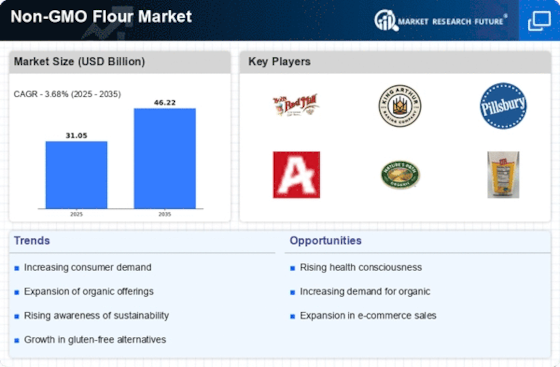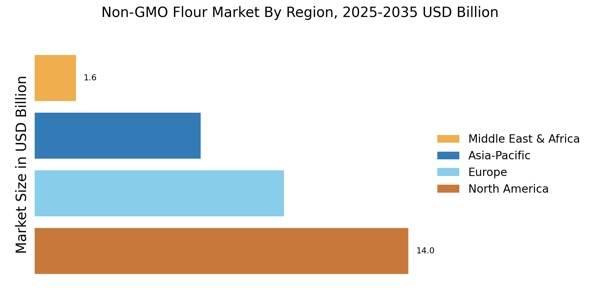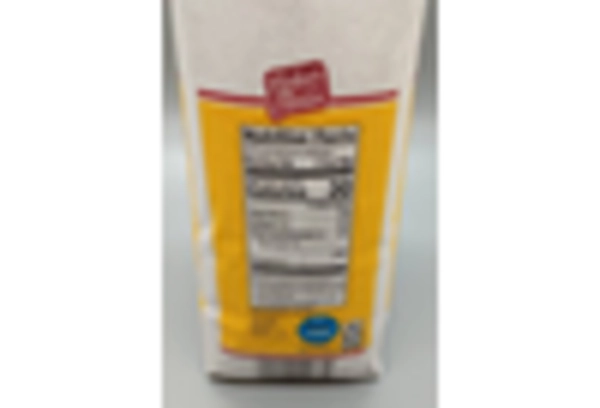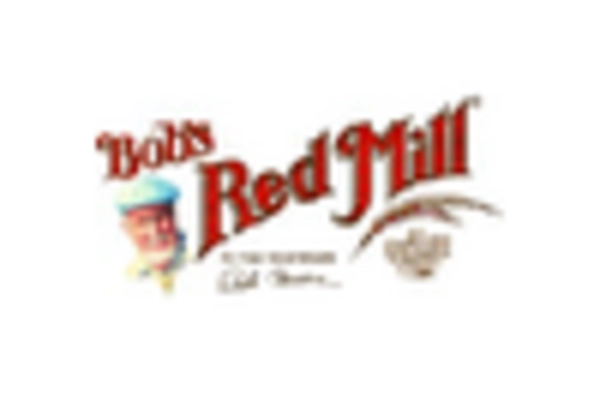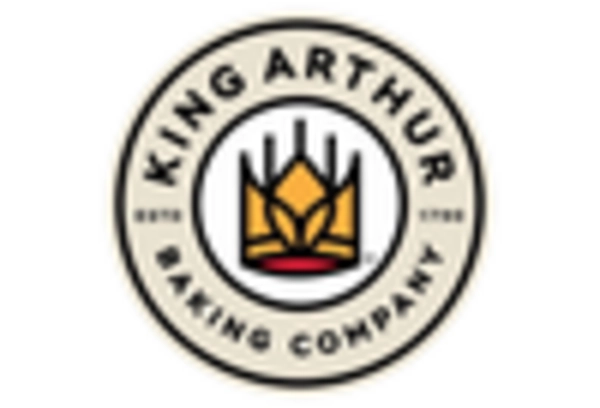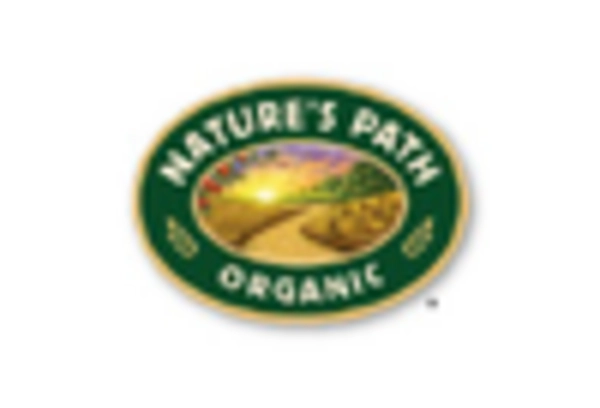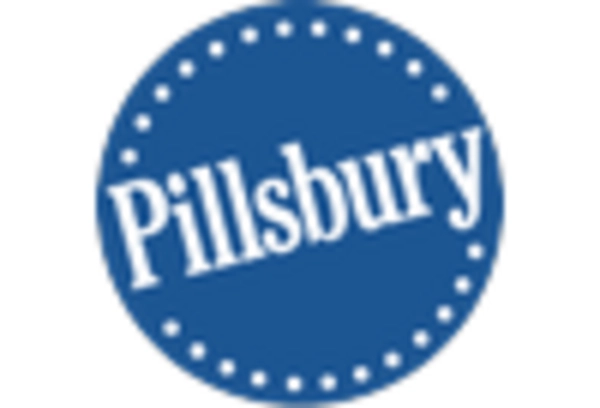Innovations in Food Technology
Innovations in food technology are playing a crucial role in shaping the Non-GMO Flour Market. Advances in milling processes and ingredient sourcing are enabling manufacturers to produce high-quality non-GMO flour that meets evolving consumer demands. Market data suggests that technological improvements are enhancing the efficiency and sustainability of flour production, which is appealing to environmentally conscious consumers. As food technology continues to evolve, it is likely that the Non-GMO Flour Market will see an influx of innovative products that cater to diverse dietary needs. This ongoing evolution not only supports the growth of the industry but also aligns with the broader trend of integrating technology into food production.
Shift Towards Plant-Based Diets
The ongoing shift towards plant-based diets is significantly influencing the Non-GMO Flour Market. As more individuals adopt vegetarian and vegan lifestyles, the demand for plant-based ingredients, including non-GMO flour, is on the rise. This trend is supported by market data indicating that the plant-based food market is projected to reach substantial growth figures in the coming years. Non-GMO flour serves as a vital ingredient in various plant-based recipes, making it an essential component for consumers seeking alternatives to traditional flour. This shift not only reflects changing dietary preferences but also suggests that the Non-GMO Flour Market will continue to thrive as it aligns with broader trends in health and sustainability.
Rising Awareness of Food Labeling
In recent years, there has been a marked increase in consumer awareness regarding food labeling, particularly concerning genetically modified ingredients. The Non-GMO Flour Market is benefiting from this heightened scrutiny, as consumers demand transparency in food production. Regulatory bodies in various regions have begun to implement stricter labeling requirements, which further encourages manufacturers to offer non-GMO options. Market data suggests that products labeled as non-GMO are often perceived as higher quality, leading to increased sales. This trend indicates that as consumers become more informed, the Non-GMO Flour Market is likely to see sustained growth, driven by a desire for clarity and trust in food sourcing.
Increasing Demand for Organic Products
The Non-GMO Flour Market is experiencing a notable surge in demand for organic products. Consumers are increasingly prioritizing health and wellness, leading to a preference for organic and non-GMO ingredients. This trend is reflected in market data, which indicates that the organic food sector has been growing at a compound annual growth rate of approximately 10%. As consumers become more aware of the potential health risks associated with genetically modified organisms, they are gravitating towards non-GMO flour options. This shift is not merely a passing trend; it appears to be a fundamental change in consumer behavior, suggesting that the Non-GMO Flour Market will continue to expand as more individuals seek out healthier alternatives.
Consumer Preference for Clean Label Products
The Non-GMO Flour Market is witnessing a growing consumer preference for clean label products. Shoppers are increasingly seeking foods with minimal ingredients and no artificial additives, which aligns with the characteristics of non-GMO flour. This trend is evident in market data showing that clean label products are gaining traction, with consumers willing to pay a premium for items that meet these criteria. As the demand for transparency and simplicity in food products rises, manufacturers are responding by expanding their non-GMO flour offerings. This shift indicates that the Non-GMO Flour Market is likely to benefit from the clean label movement, as consumers prioritize health-conscious choices in their purchasing decisions.


